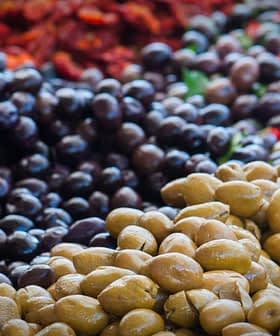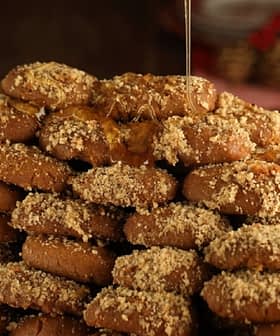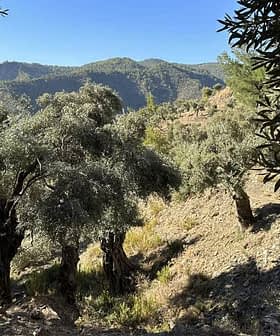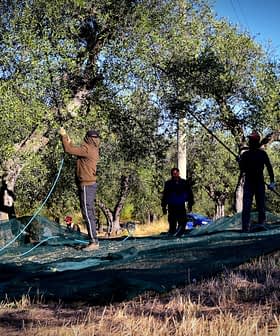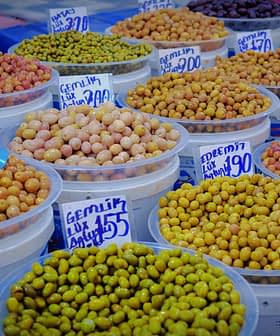Table Olives: Kalamata PDO a Mixed Blessing
The olive harvesting season in Greece is expected to yield a record 300,000 tons of olives, but low bank financing and oversupply could lead to lower prices for edible olives. The debate over the PDO label for Kalamata olives highlights how location-specific labels can create conflict among olive producers in different regions of Greece.

With the olive harvesting having already begun and taking into account that many areas of the country have been affected by the summer drought, there are mixed feelings about this season’s olive oil yield and prices.
But while most of the focus is on the olive oil, there is a lurking debate over edible olives, which constitute a smaller, but profitable, sector here.
As the To Vima newspaper reports, this season’s harvest in Greece is expected to be the biggest since 1980 giving almost 300,000 tons of olives. But with bank financing virtually non-existent because of the tormented country’s economy, trading firms cannot buy the amount of olives they need to sustain their sales. To add insult to injury, prices for edible olives are expected to be 20 — 30 percent less than last year’s due to the large production.
However, this is not the case for the well-known Kalamata olive variety. Worldwide demand for Kalamata always exceeds supply and the specific variety can sustain better prices than any other. Still, its success creates a point of disagreement; Kalamata olives hold a ‘Protected Designation of Origin’ (PDO) label, which signals its special value to consumers.
By definition, the PDO tag is a location-specific prize and determines that only olives coming from the Messinia region at southern Peloponnesus can bear the title, despite the fact that olives of the same variety can be produced elsewhere.
So, as the PDO label allows for the olive producers and traders of Messinia to sell at higher prices, it also blocks producers of other areas to collect bigger profits. And recently, the Ministry of Agriculture has accepted demands to apply to the European Union for expanding the ‘Kalamata olives’ PDO to neighboring areas of Messinia, a request that in turn drew complaints from other regions that want their share.
The issue illustrates how a PDO label can be a mixed blessing for the industry since it provides space for conflict so undesirable today when solidarity should prevail.



